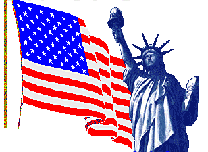|
More information about USA at www.ClearVisionBibleStudies.Com
Yale College 1701, was founded as the Collegiate School at Saybrook, Connecticut by ten Congregational ministers. It was moved to New Haven, Connecticut, and renamed for Elihu Yale (1649-1721), who was an American-born English merchant and governor of the East India Company. Elihu Yale donated books and goods from his fortune to the college in the amount of $2,800. The General Court which passed the act authorizing the new college, declared it to be an institution where: "Youth may be instructed in the Arts and Sciences who through the blessing of Almighty God may be fitted for Publick employment both in Church and Civil State." - 1701, in an act by the General Court. David A. Lockmiller, Scholars on Parade: Colleges, Universities, Costumes and Degrees (New York: MacMillan, 1969), p. 70. Pat Robertson, America's Dates With Destiny (Nashville, TN: Thomas Nelson Publishers, 1986), p. 46. Its purpose, as stated by the trustees on November 11, 1701, was: "To plant, and under ye Divine blessing to propagate in this Wilderness, the blessed Reformed, Protestant Religion, in ye purity of its Order, and Worship." - 1701. Peter G. Mode, Sourcebook and Bibliographical Guide for American Church History (Menasha, WI: George Banta Publishing Co., 1921), p. 109. See also John Elliot, New England First Fruits, 1643. David Barton, The Myth of Separation (Aledo, TX: WallBuilder Press, 1991), p. 91. Peter G. Mode, ed. Sourcebook and Bibliographical Guide for American Church History (Menasha, WI: George Banta Publishing Co., 1921), p. 109. Pat Robertson, America's Dates With Destiny (Nashville, TN: Thomas Nelson Publishers, 1986), p. 45. The founders set down specific rules for Yale College: "Whereunto the Liberal, and Religious education of Suitable youth is under ye blessing of God, a chief, and most probable expedient... we agree to... these Rules: 1. The said rector shall take Especial Care as of the moral Behaviour of the Students at all Times so with industry to Instruct and Ground Them well in Theoretical devinity... and [not to] allow them to be Instructed and Grounded in any other Systems of Synopses.... To recite the Assemblies Catechism in Latin... [with] such Explanations as may be (through the Blessing of God) most Conductive to their Establishment in the Principles of the Christian protestant Religion. 2. That the said Rector shall Cause the Scriptures Daily... morning and evening to be read by the Students at the times of prayer in the School... Expound practical Theology... Repeat Sermons... studiously Indeavor[ing] in the Education of said students to promote the power and the Purity of Religion and Best Edification and peace of these New England Churches." - Peter G. Mode, ed. Sourcebook and Bibliographical Guide for American Church History (Menasha, WI: George Banta Publishing Co., 1921), p. 109-110. Pat Robertson, America's Dates With Destiny (Nashville, TN: Thomas Nelson Publishers, 1986), p. 45-46. Franklin B. Dexter, ed., Documentary History of Yale University (NY: Amo Press and The New York Times, 1969), p. 32. David Barton, The Myth of Separation (Aledo, TX: WallBuilder Press, 1991), p. 91. The requirements for the students included: "All scholars shall live religious, godly, and blameless lives according to the rules of God's Word, diligently reading the Holy Scriptures, the fountain of light and truth; and constantly attend upon all the duties of religion, both in public and secret." - 1701. Quoted in Richard Hofstader and Wilson Smith, eds., American Higher Education: A Documentary History (Chicago, IL: University of Chicago Press, 1961), 1:49. Gary DeMar, The Untold Story (Atlanta, GA: American Vision, Inc., 1993), p. 43. "Seeing God is the giver of all wisdom, every scholar, besides private or secret prayer, where all we are bound to ask wisdom, shall be present morning and evening at public prayer in the hall at the accustomed hour." - 1701. Stephen K. McDowell and Mark A. Beliles, America's Providential History (Charlottesville, VA: Providence Press, 1988), p. 92. David Barton, The Myth of Separation (Aledo, TX: WallBuilder Press, 1991), p. 91. The primary goal, as outlined by the founders, stated: "Every student shall consider the main end of his study to wit to know God in Jesus Christ and answerably to lead a Godly, sober life." - 1701, as stated by the founders. William C. Ringenberg, The Christian College: A History of Protestant Higher Education in America (Grand Rapids, MI: Eerdmans, 1984), p. 38. Gary DeMar, The Untold Story (Atlanta, GA: American Vision, Inc., 1993), p. 42. The Yale Charter of 1745 clarified the intention of the college: "Which has received the favourable benefactions of many liberal [generous] and piously disposed persons, and under the blessing of Almighty God has trained up many worthy persons for the service of God in the state as well as in the church." - 1745, in the Yale Charter. Quoted in Richard Hofstader and Wilson Smith, eds., American Higher Education: A Documentary History (Chicago, IL: University of Chicago Press, 1961), 1:49. Gary DeMar, The Untold Story (Atlanta, GA: American Vision, Inc., 1993), p. 43-44. Benjamin Silliman, a well known American science educator and editor, was a Yale faculty member during the era of Yale President Timothy Dwight, 1795-1817. He wrote concerning the atmosphere that existed on the Yale campus: "It would delight your heart to see how the trophies of the cross are multiplied in this institution. Yale College is a little temple: prayer and praise seem to be the delight of the greater part of the students." - In a writing of Yale faculty member Benjamin Silliman. Henry M. Morris, Men of Science - Men of God (El Cajon, CA: Master Books, Creation Life Publishers, Inc., 1990), pp. 39.
www.ClearVisionBibleStudies.Com |
